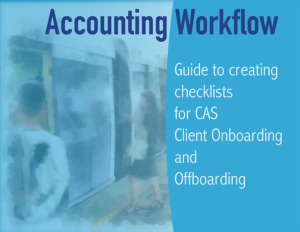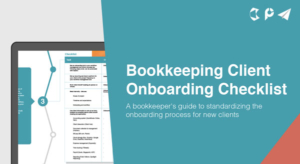Bookkeeping firms can face many threats, but perhaps none are as invisible or as detrimental as scope creep. Scope creep is what happens when you do work that you aren’t being paid to do. Sounds awful, right? This can mean that you are agreeing to additional tasks that were not in your engagement letter or that the scope of a project has expanded beyond what you’ve agreed to.
It can be difficult to address scope creep once it begins to… creep up. After all, no one likes confrontation. A lot of times, scope creep can happen when we’re just trying to be nice. For example, maybe a client asks if you can meet outside your regular hours “just this once”. It may seem like you’re doing the polite thing, so preventing scope creep often means learning to say “no” AND learning to tell clients when they’ve crossed a boundary.
Be Clear From the Beginning
In your earliest communications with your clients, you should be setting expectations. Don’t mince words, and don’t be afraid to take time to clearly establish the scope of your project early on. If you and your client both know exactly what to expect from the very beginning, there is less risk of clients accidentally pushing your boundaries.
Write a Great Engagement Letter
An engagement letter is your first line of defense in many ways. It can protect you legally if trouble arises with a client, but it can also be a necessary resource to refer back to as you’re working. The engagement letter should define the scope and what happens if the terms of the engagement letter are broken in any way. If conflict arises when you refuse to do extra work, you can point to this document — but, your client can also reference this document themselves before asking you to do something!
Utilize Checklists
The best way to ensure you aren’t working outside of agreed terms is through understanding your own processes. Make checklists for each of the procedures involved in your client work. You and your team can refer to these checklists as you complete tasks so that you are working exclusively by the book and not deviating from the work you’ve agreed to do.
Make Changes
If scope creep has become a problem at your firm or with specific clients, it’s okay to make some changes. Sometimes, things happen. Unforeseen circumstances can arise that make it necessary to redefine the scope of a project as the needs of your clients evolve. Communicate with your clients and strive to understand their business. If they need additional work from you, that may create an opportunity for you to upsell your services!Staying within the designated scope of your bookkeeping work is necessary for any firm that wants to scale and be successful. If you don’t, you’ll quickly find yourself overworked and underpaid. Most importantly, remember: saying “no” doesn’t make you the bad guy and good clients will understand.











